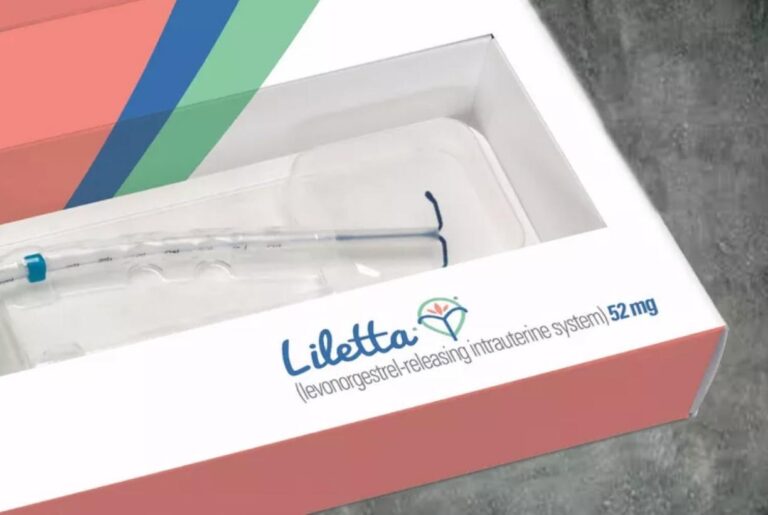Risperidone 25 mg side effects may be harmful to your health. As an antipsychotic medicine, this medication should treat your mental illness. However, there are several adverse effects you need to know. Keep reading to learn more details regarding risperidone in this article!
Overview of Risperidone
Before discussing Risperidone 25 mg side effects, we need to understand what this medicine is. Risperidone (or Risperdal in brand name) is part of the antipsychotic drugs. It means the drug helps to treat mental health problems whose symptoms include psychotic experiences.
What is Risperidone Used for?
As an atypical antipsychotic drug, Risperidone is sufficient to treat several mental health problems. Below are some psychiatric conditions that are suitable for Risperdal treatment.
1. Schizophrenia
This mental health disorder causes the condition that affects how the person thinks, sees, feels, and behaves. As a result, the person suffers hallucinations and loses touch with reality.
2. Mania Symptoms by Bipolar Disorder
A person who has bipolar disorder suffers drastic mood changes. The conditions may include mania (overjoyed), depression, or a mixture of both.
3. Aggressive or Agigate Behavior Associated with Autism
A person with autism could have difficulty communicating, interacting with others, and learning. In a bad case, the symptoms may involve aggressive behavior, mood shifts, thoughts of self-harm, and strong expressions of anger and frustration.
How Does The Medicine Work?
Risperidone is accessible for illness treatment through prescription. The medication is available as an oral tablet, an orally disintegrating tablet, and an oral solution or medicine in liquid form. Additionally, there is also Risperdal as an injection but only given by the health provider.
Risperidone affects the amount of chemicals—neurotransmitters—in the brain. The medicine aims to balance the work of these neurotransmitters for people with schizophrenia, bipolar disorder, or autism.
However, the medicine doesn’t cure the mental disorder but rather keeps the symptoms under control. Additionally, this drug might have side effects, like feeling sleepy, headache, and weight gain.
What are Risperidone 25 mg Side Effects?
The consumption of Risperidone can cause several adverse effects. Some symptoms might be harmless. However, other symptoms can be a sign of severe complications, as explained below.
1. Common Side Effects
Risperidone use can cause common side effects which are not harmful. However, you may need to call a doctor if the symptoms bother you or don’t go away. The symptoms include:
- dizziness,
- constipation,
- dry mouth,
- stuffy nose,
- nausea or vomiting,
- anxiety,
- fatigue,
- agitation,
- diarrhea
- drowsiness,
- upset stomach, and
- weight gain.
2. Serious Adverse Effects
The consumption of Risperidone could also cause severe adverse effects. If you suffer from these symptoms, call for medical help immediately. The symptoms involve:
- high fever,
- sweating,
- confusion,
- tremors,
- uneven heartbeats,
- sore throat,
- easy bruising,
- swollen gums,
- breast swelling for men and women,
- uncontrollable face muscle movement,
- increased urination,
- increased thirst,
- trouble breathing,
- trouble swallowing,
- stiff muscle,
- missed menstruation periods, and
- priapism or painful erection for more than 4 hours.
3. Special Warning about Respiridone
Risperidone 25 mg side effects can lead to severe damage. Therefore, elderly patients with dementia are forbidden to consume this medication. Several complications might occur during Risperidone treatment, as follows.
a. Increasing Mortality for Elderly Patients with Dementia
According to RxList, some trials found that people with dementia increased risk of death when taking atypical antipsychotics. Compared to patients who don’t take this medicine, patients with dementia taking Risperidone are 1.5 times at risk of death.
b. Cerebrovascular Adverse Reactions for Elderly Patients with Dementia
Elderly patients (in the range of 73-97 years old) with dementia are at risk of experiencing cerebrovascular adverse reactions if they get Risperidone treatment. As a result, the patients are vulnerable to stroke or transient ischemic attack.
People under Risperidone must report to the doctor if they experience the symptoms of strokes. The symptoms may include speech and vision problems, and numbness in the arm, leg, or face.
c. Neuroleptic Malignant Syndrome
Neuroleptic Malignant Syndrome is a fatal condition that relates to the use of antipsychotics. The symptoms of this condition may involve muscle rigidity, altered mental status, hyperpyrexia, blood pressure, tachycardia, diaphoresis, and cardiac dysrhythmia.
d. Tardive Dyskinesia
Tardive Dyskinesia is a rare condition related to the use of certain medications. The patient who suffers from this condition can’t control their facial movement. Consequently, the patient has uncontrollable movement of their face, such as rapid blinking, tongue thrusting, and lip-smacking.
What’s the Precaution Before Taking Risperidone?
Before the physician prescribes Risperidone, they need to verify your conditions. If you have any of the following conditions, you should tell your physician:
- allergy to Risperidone or Paliperdone;
- dementia;
- diabetes;
- high cholesterol;
- heart diseases;
- difficulty swallowing;
- liver diseases;
- kidney diseases;
- low blood count or pressure;
- trouble in controlling muscles;
- history of breast cancer;
- history of stroke;
- high level of prolactin;
- pregnant or breastfeeding;
- Parkinson’s disease; and
- seizures.
Always follow the prescription of the doctor and take this medication regularly. If you suddenly stop the consumption or don’t take the medicine at all, your condition may worsen.
In case you miss the doses, set the alarm to remind you. If you miss doses or don’t take them on the schedule, the medication will be less effective. Remember to not take two doses at once to catch up on the missing dose. Correspondingly, get immediate help when you feel you take too much medicine.
The Controversy of Risperidone 25 mg Side Effects
The well-known controversy of Risperidone (Risperdal) is due to its side effect causing gynecomastia. Gynecomastia is a condition of breast enlargement in males that needs surgery to correct it. The study reported that the medicine caused early breast development in young girls as well as boys with gynecomastia.
As a result, many men and boys suffered mental trauma and humiliation due to embarrassing breast growth. The manufacturers, Johnson & Johnson, and its affiliates received more than 7,000 lawsuits for this pharmaceutical problem. Furthermore, the manufacturer was found guilty of illegal marketing.
For the compensation, the jury ordered the manufacturers to pay an indemnity to the plaintiffs for at least $500,000. For instance, in July 2016, a jury in Philadelphia awarded $70,000,000 to Andrew Yount for a gynecomastia case. This amount is the highest compensation in Philadelphia litigation for drug and gynecomastia cases.
Watch Out with Risperidone 25 mg Side Effects!
Many complications occur due to Risperidone 25 mg side effects. If the doctor prescribes this medication, it means they believe this drug will help you more. However, you should stay alert when consuming this drug.
Bear in mind to let your physician know about your health condition. Thus, they can consider if your condition is suitable to receive treatment that incorporates risperidone in a 25 mg dose.
Accordingly, always follow your doctor’s instructions. Also, contact them immediately if any side effect occurs even in the early stage to prevent any further worsening.



